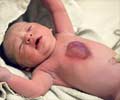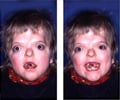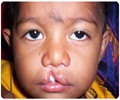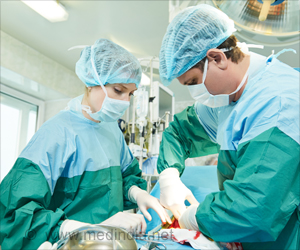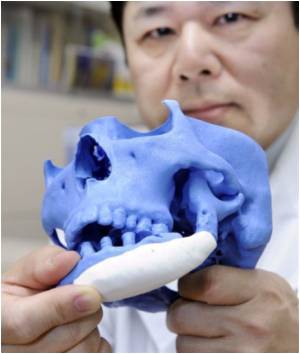What is Cleft Palate Surgery?
Cleft palate is a developmental disorder that affects the palate or the roof of the mouth. In this condition, the two sides of the palate fail to join in the middle resulting in a gap. The defect may be small, resulting in only a notch, or may extend throughout the palate. It may or may not be accompanied by cleft lip.
The palate consists of two parts - a hard palate and a soft palate. The hard palate is made of bone. The softer part attached at the end of the hard palate towards the throat is called the soft palate. The defect may extend through the hard palate, soft palate or both.
Surgery for cleft palate is called palatoplasty. The patient may also have other deformities, which should be identified and treated. Priority should be given to more serious deformities first.
Surgery for cleft palate is required for the following reasons:
Cosmetic effect: The face is the part of our body associated with our identity and appearance. A cleft lip and palate result in facial distortion. These should be addressed as early as possible to prevent psychological impact on the child and prevent social isolation.
In addition to appearance, a cleft palate also causes other problems, which are addressed through surgery. These include:
- Difficulty in sucking and swallowing in infants
- Difficulty with speech as the child grows up
- Frequent ear infections, which may result in hearing loss
- Deformities during the development of the face and the teeth
The timing for cleft palate surgery varies in different hospitals. It is usually done when the baby is 6 to 12 months of age. It may be done later as well, especially if the child comes late for the surgery. Some advocate the repair of the soft palate early so that speech is not affected, and repair of the hard palate after a few years when the growth of the palate minimizes the gap.
Cleft palate surgery is done through the mouth under general anesthesia. Antibiotics are administered to the child to prevent infection. An endotracheal tube is inserted so that breathing is not affected. A mouth gag is placed to keep the mouth open. An injection containing epinephrine is administered into the palate. Epinephrine contracts blood vessels and therefore prevents blood loss and allows a good view.
There are several different approaches to surgery of cleft palate. The type of surgery may vary depending on the extent of the cleft palate.
During the surgery, the defect in the hard palate is closed using soft tissue lining the palate. Flaps of the mucus membrane and the periosteum lining the palate are made. They are advanced and sutured in the midline to close the defect.
The soft palate is repaired by readjusting its muscles to close the gap. Repair of the soft palate helps to maintain proper speech and reduce ear infections and therefore damage to the inner ear.
What is the Post-operative Care Required following Cleft Palate Surgery?
The child can start taking oral fluids after the surgery on advice of the surgeon. Oxygen levels should be measured to ensure that breathing is normal. Painkillers can be given so that the child does not feel pain. The child should not put anything hard in the mouth. Hard toys should be kept away. Even the spoon used to feed the child should be soft. Full recovery may take a few weeks. In the long-term, the child requires speech therapy and regular dental care to ensure that the teeth grow well.
Complications of cleft palate surgery include the following:
- Bleeding
- Infection
- Obstruction to breathing
- Formation of a fistula, i.e. an abnormal communication between the nose and the mouth
- Problems with facial growth resulting in a smaller upper jaw
- Problems with speech and teeth development
- Complications associated with anesthesia




